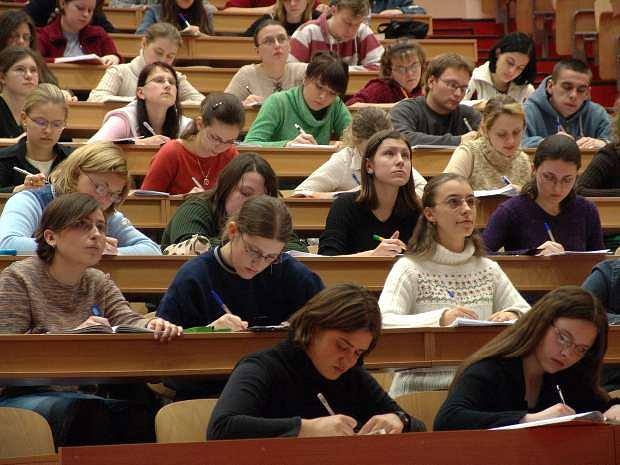Romanian students do a little better in PISA testing but their results are still way below average



The Romanian students’ performances in the 2015 PISA testing on Science, Mathematics, and Reading improved compared to 2006, but are still well below the OECD average.
The Programme for International Student Assessment (PISA) is a triennial international survey which aims to evaluate education systems worldwide by testing the skills and knowledge of 15-year-old students. The program is carried out by the Organization for Economic Co-operation and Development (OECD).
In the 2015 testing, which focused on Science, Romania had an average score of 435 points in this domain, ranking 48th out of 70 countries where the test was performed. Romania is one of the 11 countries’ whose scores in Science improved compared to 2006. However, Romania is still much under the OECD average score of 493 and way behind leaders Singapore (556 points), Japan (538 points), and Estonia (534 points).
Moreover, Romania ranks last in the EU on this subject, far behind Poland (501 points), Czech Republic (493 points), Hungary (477 points), and even Bulgaria (446 points).
Only 0.7% of the tested Romanian students are top performers in Science (level 5 or above) while 38.5% are low performers (under level 2). Bu comparison, 7.3% of the Polish students, 10.6% of the Germans, and 15.3% of the Japanese are top performers in Science.
Romania’s overall scores in Reading and Mathematics were also below the OECD average in 2015, but slightly higher than in 2006. Romania had a score of 434 points in Reading and 444 points in Math.
The share of top performers in at least one of the three tested subjects was 4.3% in Romania, compared to an OECD average of 15.3%. The share of top performers in all three domains was 0.3%, compared to an OECD average of 3.5%. Meanwhile, the share of low performers in all three domains was 24.3%, over the OECD average of 13%.
PISA assesses the extent to which 15-year-old students, near the end of their compulsory education, have acquired key knowledge and skills that are essential for full participation in modern societies. The assessment focuses on the core school subjects of science, reading and mathematics. The assessment does not just ascertain whether students can reproduce knowledge; it also examines how well students can extrapolate from what they have learned and can apply that knowledge in unfamiliar settings, both in and outside of school.
Approximately 540 000 students completed the PISA assessment in 2015, representing about 29 million 15-year-olds in the schools of the 72 participating countries and economies.
A summary of the 2015 PISA assestment is available here, and the full results can be seen here.
Romania, among Europe's low-achievers on education
More than 40% of young Romanians are functionally illiterate, study shows
editor@romania-insider.com